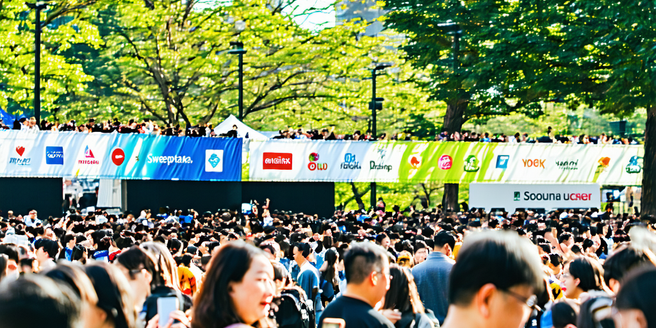
The Rise of Digital Sweepstakes Platforms
In recent years, digital sweepstakes platforms have surged in popularity, offering brands an innovative way to engage with consumers. By leveraging the internet and mobile technology, these platforms provide an accessible and efficient way for users to participate, breaking traditional geographic and time barriers. With increased user participation, brands are seeing tangible results in both engagement and conversion rates. This shift towards digital has also allowed companies to gather valuable consumer data, helping in the customization of marketing strategies. In addition, these platforms often incorporate social media to increase reach and engagement. Furthermore, digital platforms offer transparency and ease of management, enhancing user trust and participation rates. As technological advancements continue, we anticipate further innovations, making these platforms even more integral to promotional strategies.
Demographics and Preferences of Participants
Understanding the demographics and preferences of sweepstakes participants is crucial for designing effective promotions. Typically, participants range from tech-savvy millennials to older generations looking for engaging contests. Preferences often lean toward digital entries due to convenience and speed, with a growing interest in socially shareable formats that incentivize participation and referral. As privacy concerns rise, it becomes essential for companies to build trust by transparently handling participant data. Engaging participants through personalized communication further strengthens loyalty and trust. By analyzing participant demographics, companies can tailor content and rewards that resonate more deeply with their target audience, increasing engagement and satisfaction. This demographic analysis is vital in adapting strategies to meet the evolving needs and desires of participants.
Impact of Social Media on Sweepstakes Participation
Social media plays a pivotal role in the world of sweepstakes, dramatically enhancing participation levels and reach. Platforms like Facebook, Instagram, and Twitter provide an ideal space for brands to promote contests, encouraging users to engage through likes, shares, and comments. This not only boosts brand visibility but also creates a community around the sweepstakes itself. Influencers can also play a significant role by amplifying the reach and credibility of sweepstakes. These platforms also allow brands to target specific demographics effectively. The viral nature of social media allows for rapid dissemination of promotional content, making it easier for companies to attract a wider audience. Moreover, social media enables real-time interaction with participants, fostering a sense of community and building ongoing engagement.
Legal Considerations and Compliance Trends
Navigating the legal landscape is a critical facet of conducting digital sweepstakes. Compliance with national and international laws ensures that contests are fair and transparent, protecting both the brand and the participants. Companies must be aware of regulations concerning entry methods, prize distribution, and data privacy. Recent trends indicate an increase in regulatory scrutiny, necessitating brands to adopt stricter compliance measures. As such, it’s important for companies to regularly review and update their policies to stay ahead of changes in the legal environment. This includes clearly outlining rules, ensuring random winner selection, and safeguarding participant data. By adhering to these legal considerations, companies not only avoid penalties but also enhance participant trust and brand reputation.
Future Predictions for Sweepstakes in a Digital Age
As we peer into the future of sweepstakes, the emphasis will likely be on personalization and interactivity. Advances in artificial intelligence and machine learning can optimize user experiences by offering personalized contests that align with consumer preferences. This shift towards customization will create more meaningful connections between brands and participants. Furthermore, the integration of blockchain technology could enhance trust by ensuring the authenticity and security of sweepstake entries. Augmented reality and virtual reality experiences may also redefine the landscape of digital sweepstakes, providing immersive and engaging contests. Additionally, as concerns about data privacy grow, there will be an increased focus on transparency and secure data handling. The digital age promises a dynamic evolution for sweepstakes, offering endless possibilities for innovation and consumer engagement.
